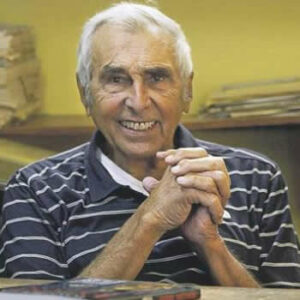
Tony Bouza
BY TONY BOUZA
Once a guy gets to my age, he needs to ask himself whether he’s ever engaged in sexual harassment, in any form: “An unexamined life . . . “
Well?
After a mental search, I remembered. It was August 1994. Erica was selling her jewelry at the Uptown Art Fair. I spelled her for a latrine break.
I was sitting in the empty stall when a middle-aged woman led a tall, younger girl inside by an insistent hand. A kinetic scene.
“What do you mean by telling my daughter a big-breasted girl like her needs large earrings?”
Knocked back by this furious accusation, I thought frantically. I apologized profusely for what I was sure was a misunderstanding, but she’d have none of it and sustained her assault.
Angrily, she led her daughter out with a final message: “You’ll never get my vote.”
I was then engaged in an amateurish and quixotic doomed quest for public office.
I searched my memory and finally remembered: “A statuesque woman like you should have large earrings.”
What the daughter had heard was some grotesque version.
I’d attended a course on Transactional Analysis in 1973, and it changed my life.
Now, I reflexively studied the exchange and concluded the mother and daughter mistook my language. They responded honestly and correctly. Confrontation.
So, whose fault, as we like to ask?
I concluded—with little doubt—it was mine. I’d been airily flip and disrespectfully familiar with an innocent young woman who misconstrued my words and intent.
The temptation to wallow in self-pity was strong, but I demurred. I had been wrong and they’d responded honestly.
A quarter century later a friend reported that his son’s girlfriend had told him I’d been flirting with her at a cook-out.
OMG, in today’s parlance.
I had to, once again, review my conduct.
She’d asked me to opine on her ex-husband’s wish to be a cop.
With fatal consistency my response was flip, dismissive and obsequious to lame humor.
Again, the woman had responded honestly, forthrightly and even courageously. Another wallowing temptation to resist for me.
What I could never resist, to my real regret, is to subvert everything to the service of humor. I do love humor. But do I love it too much?
Very likely, yes.
The exercise is important for its contribution to the examined life. In these two incidents I felt the strong urge to self-righteous indignation. How comforting! How helpful!
Really? Helpful?
The very opposite.
To become real persons, we must look first within for the flaws. I’ve found that I’ve rarely had to look further.
The T. A. course taught me a number of things: There are no simple transactions; question everything; look within first and try to become a more effective worm. Or is it gorilla?
And to conclude with my first question—I really think that most female accusers are acting in good faith and telling the truth as they’ve experienced it.






















